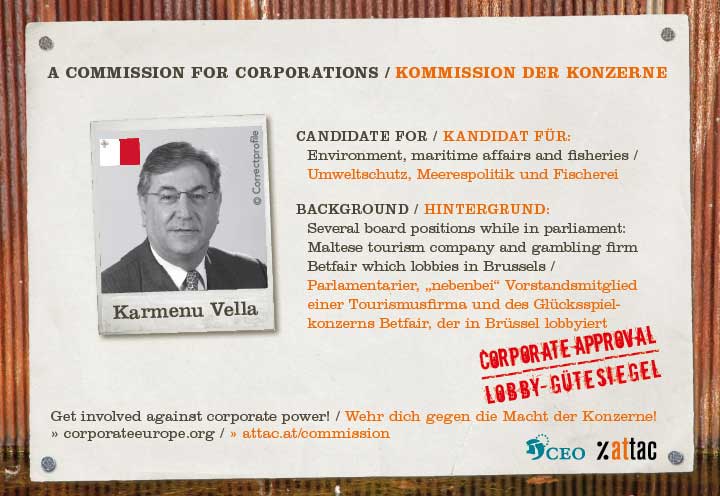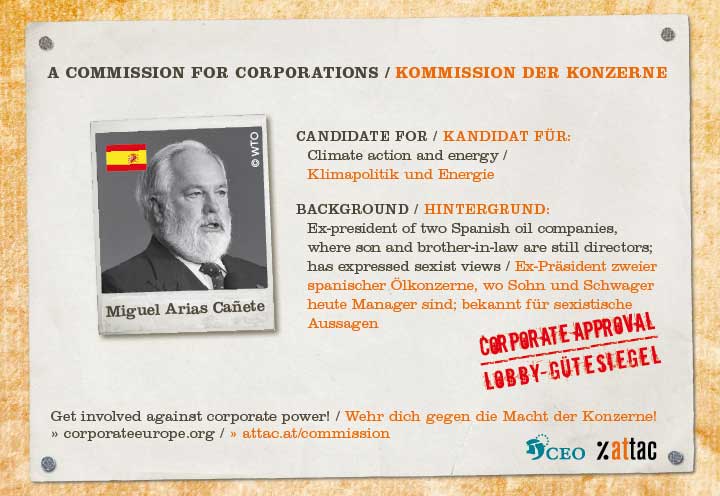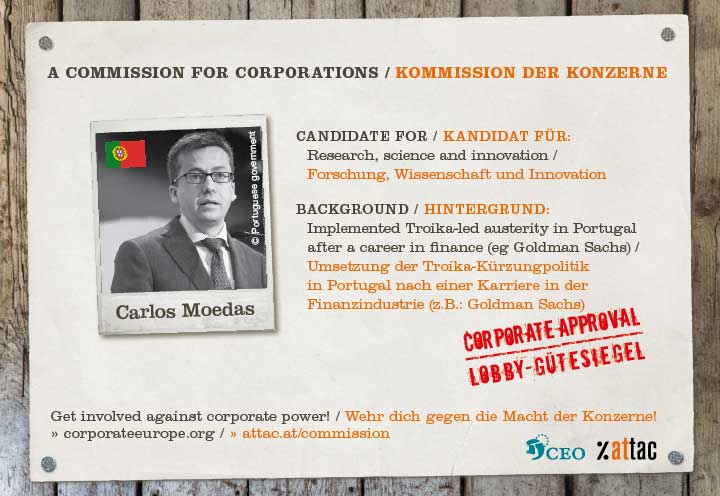New European Commission Set To Serve A Corporate Agenda
By Colin Todhunter
02 October, 2014
Countercurrents.org
Europeans require the European Commission (EC) to act in the interests of ordinary people and the environment, not a handful of powerful private corporations. The previous Barosso Commission was accused of being a willing but captive servant of a corporate agenda and a disgrace to Europe's democratic traditions. It pursued an agenda on behalf of big business [1].
The EC is the executive body of the European Union (EU) and is responsible for proposing legislation, implementing decisions, upholding the Union's treaties and the day-to-day management of the EU. Commissioners pledge to be completely independent in carrying out their duties during their mandate.
The Commission operates as a cabinet government and comprises 28 members (informally known as commissioners). The European Council nominates a candidate to be president of the Commission, who must be approved by a majority of the members of the European Parliament. The president-elect (currently Jean-Claude Juncker) chooses the commissioners from candidates put forward by the EU countries.
As the EC is the fulcrum of power within the EU, the people of Europe have a right to know just who the new commissioners are and their suitability in terms of any conflicts of interest.
In the images below, courtesy of Corporate Europe Observatory (CEO) and Attac Austria, basic insight is provided into the backgrounds of some of the prospective members of the new Juncker Commission, which will be in office from November 2014 to 2019. The information reveals serious conflicts of interest.
More in-depth evidence of these conflicts are provided with regard to the wholly unsuitable corporate backgrounds of candidates Jonathan Hills and Arias Canate on the CEO website [2,3].






Can it be right that an ex-corporate lobbyist is put in charge of regulating the financial services sector or that an ex-petroleum industry insider becomes responsible for climate action?
The previous Barosso Commission sold out ordinary people's interests to powerful corporations. The Transatlantic Trade and Investment Partnership (TTIP) [4] could well be the ultimate outcome of this.
With a new Commission being stacked with former corporate lobbyists and people from the world of big business, Europeans have every right to be sceptical and feel that the Juncker Commission will continue to serve a corporate agenda.
Colin Todhunter : Originally from the northwest of England, Colin Todhunter has spent many years in India. He has written extensively for the Deccan Herald (the Bangalore-based broadsheet), New Indian Express and Morning Star (Britain). His articles have also appeared in various other newspapers, journals and books. His East by Northwest website is at: http://colintodhunter.blogspot.com
Notes
1] http://corporateeurope.org/sites/default/files/record_captive_commission.pdf
Comments are moderated
